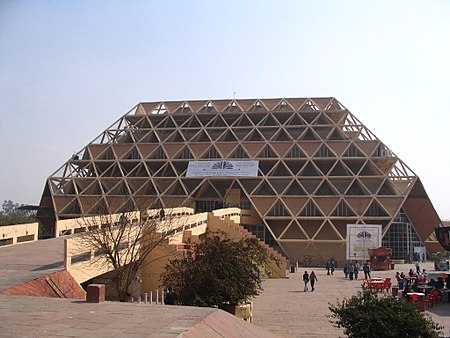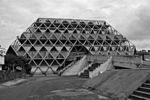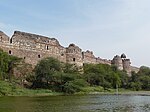Pragati Maidan
1982 establishments in DelhiBuildings and structures completed in 1982Buildings and structures in New DelhiConvention centres in IndiaGovernment buildings in Delhi ... and 2 more
Maidans in IndiaUse Indian English from March 2019

Pragati Maidan is a venue for large exhibitions and conventions in the city of New Delhi, India. It has an area of nearly 150 acres (more than 625,000m2) of exhibition space, being among the biggest exhibition centers in India.It is owned, operated, controlled and managed by India Trade Promotion Organization (ITPO), the trade promotion agency of the Ministry of Commerce and Industry, Govt. of India. It is partially under redevelopment since 2018 for the ambitious International Exhibition & Convention Centre (IECC) project.
Excerpt from the Wikipedia article Pragati Maidan (License: CC BY-SA 3.0, Authors, Images).Pragati Maidan
Delhi
Geographical coordinates (GPS) Address Nearby Places Show on map
Geographical coordinates (GPS)
| Latitude | Longitude |
|---|---|
| N 28.616813 ° | E 77.243359 ° |
Address
110503 Delhi
Delhi, India
Open on Google Maps






